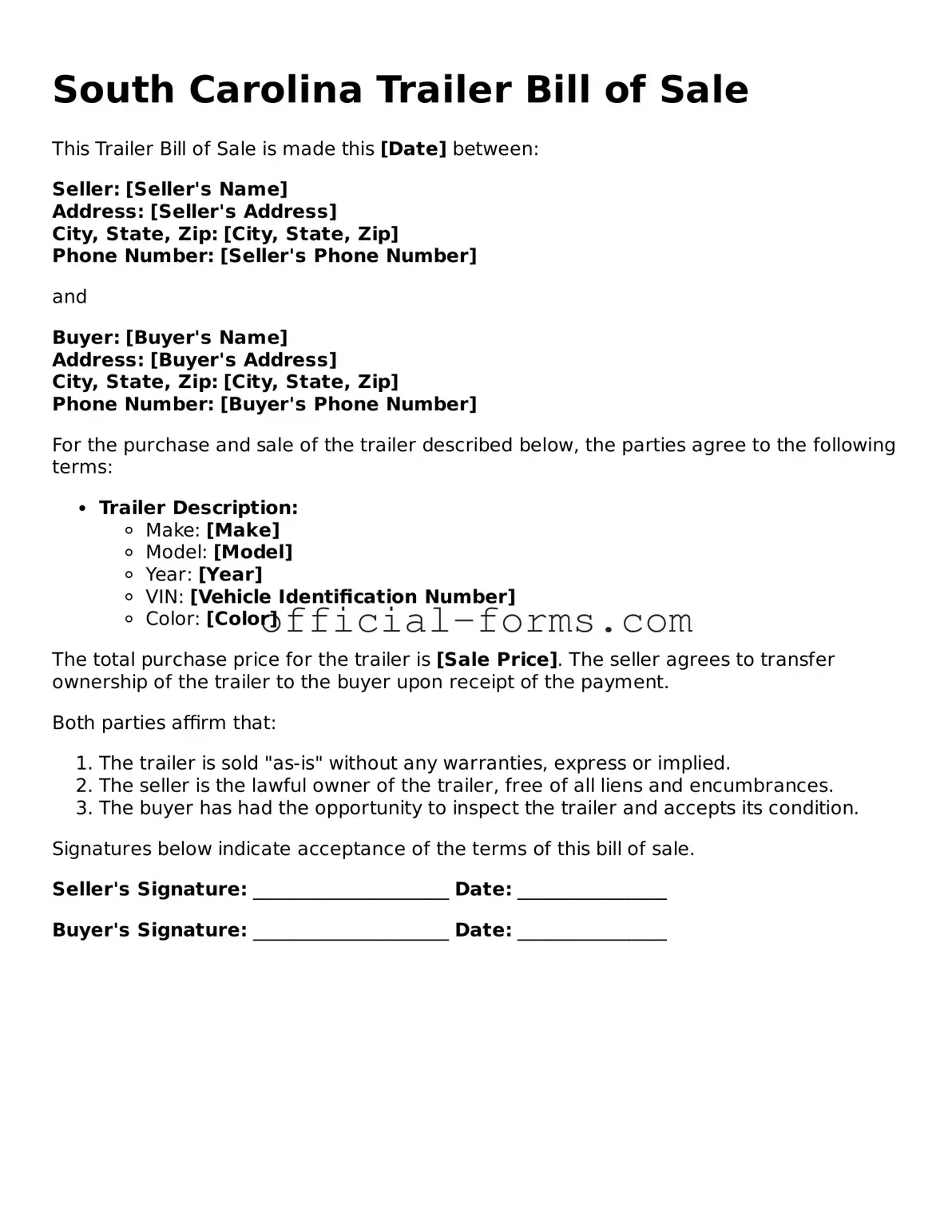Filling out the South Carolina Trailer Bill of Sale form can seem straightforward, but many people make common mistakes that can lead to complications down the road. One frequent error is failing to include all necessary information about the trailer. Essential details such as the trailer's Vehicle Identification Number (VIN), make, model, and year must be accurately recorded. Without this information, the bill of sale may not be considered valid.
Another mistake occurs when individuals do not provide the correct names and addresses of both the buyer and seller. It's crucial that this information is clear and matches official identification. If the names are misspelled or addresses are incorrect, it could create confusion or disputes later on.
Many people overlook the importance of signing the document. Both parties must sign the bill of sale for it to be legally binding. A common misconception is that a verbal agreement is sufficient. However, without signatures, the document lacks the necessary legal weight.
Additionally, some individuals fail to include the sale price. This omission can lead to issues with tax reporting and registration. The sale price should be clearly stated to avoid misunderstandings and ensure that both parties are on the same page regarding the transaction.
Another mistake is not providing a date on the bill of sale. The date of the transaction is important for both parties, especially for tax purposes and future reference. Without a date, it may be difficult to prove when the sale occurred.
People also sometimes neglect to check for any liens or outstanding debts on the trailer. If the trailer has a lien, the seller must disclose this information. Failing to do so can result in legal complications for the buyer later on.
In some cases, individuals forget to make copies of the completed bill of sale. Both the buyer and seller should keep a copy for their records. This document serves as proof of the transaction and can be important for future reference, especially if disputes arise.
Another common error is not considering the need for notarization. While it is not always required, having the bill of sale notarized can provide an extra layer of protection for both parties. It verifies the identities of those involved and can help prevent fraud.
Lastly, people may not fully understand the implications of the bill of sale. It is not just a simple receipt; it is a legal document that can impact ownership rights and responsibilities. Taking the time to fill it out correctly and understanding its significance can save both parties from potential headaches in the future.

